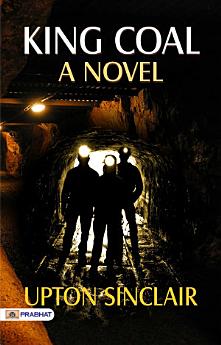King Coal: King Coal: A Novel 1917: Upton Sinclair's International Classic Bestseller Book - Upton Sinclair's Gripping Tale: Exploring the World of King Coal
About this ebook
Key Aspects of the Book King Coal:
Social Realism: Upton Sinclair's novel is renowned for its vivid depiction of the working-class experience. King Coal exposes the harsh working conditions, poverty, and injustices faced by coal miners during the early industrial era. Sinclair's writing captures the gritty realities of their lives, offering readers a glimpse into a world of struggle, resilience, and social inequality.
Labor Rights and Social Justice: The book delves into the labor movement and the fight for workers' rights. Sinclair's protagonist navigates the challenges of organizing labor unions, confronting corrupt mine owners, and advocating for fair treatment and safer working conditions. King Coal raises important questions about social justice, economic disparity, and the power dynamics within society.
Political and Social Commentary: Through his powerful narrative, Sinclair provides incisive social and political commentary. The novel explores themes of corporate greed, political corruption, and the impact of capitalism on the lives of the working class. Sinclair's critiques of the system and his call for social reform resonate with readers, prompting reflection on issues that persist in society today.
Upton Sinclair was an American author and social reformer known for his investigative journalism and powerful novels that exposed social injustices. King Coal is one of his seminal works, highlighting the plight of coal miners and the systemic problems within the industrial landscape of early 20th-century America. Sinclair's activism and writings sparked public awareness and contributed to significant reforms in labor rights and working conditions. His legacy as a champion of social justice and political reform endures to this day.








